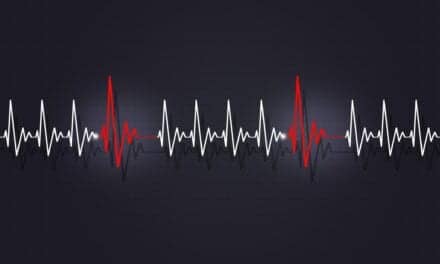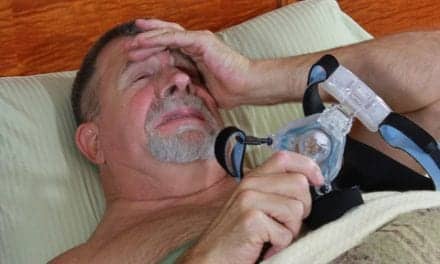According to a study presented at the Annual Scientific Meeting of the Heart Failure Society of America, an estimated 35% of patients with heart failure (HF) have central sleep apnea, and about 2.1 million people in the United States are affected.
Cardiology Today recently reported that William T. Abraham, MD, director of cardiovascular medicine at The Ohio State University Wexner Medical Center and his team utilized a transvenous phrenic nerve stimulator (remed? system from Respicardia) to restore normal sleep and breathing to improve respiratory and cardiovascular health in patients with central sleep apnea.
According to a press release from Respicardia, the remed? device is implanted below the collarbone by electrophysiologists using a procedure similar to the implantation of intracardiac devices.
“The device gives impulses on a regular basis [to a phrenic nerve] to regularize breathing, avoiding the highs … of hyperventilation and the lows … of apnea,” Abraham explained in a released statement.
As noted by Cardiology Today, the remed? system pilot study is the first prospective, international, multicenter, nonrandomized trial to investigate the use of this device in patients with central sleep apnea. For the study, researchers enrolled 57 patients over the age of 18. Of these participants, 49 were implanted successfully, 47 were available for follow-up after 3 months and 44 were available for follow-up after 6 months.
All patients had a baseline apnea-hypopnea index of ?20. Patients with HF were stable, and medications were optimized and stable for at least 30 days.
“The remed? System therapy shows promise for the treatment of central sleep apnea and warrants further study,” Abraham said.



